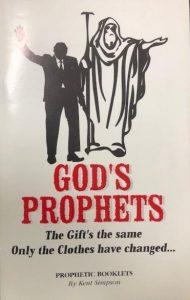The Lord’s Burdens are Lite
While many of our recent articles have highlighted the extreme sacrifices made by some of the genealogy members of Bezalel, the Chief Architect of the Tabernacle, our last article touched on the weekly day of rest that God generously set aside for His People. While God expects us to be willing to give our all to Him, in return, we receive more rest and blessings than we could ever provide for ourselves. The building material requests God issued through Moses was greater than the wealth the previously enslaved Israelites could have ever produced during their time in bondage, but God made a way for them to not only willingly offer the required supplies, but also have enormous wealth left over for themselves and their families.
God recognized the bondage that the Israelites had been under for four centuries and did not want His People to be forcibly compelled to contribute to or participate in the grand construction project of building the Tabernacle. He wanted Willing Hearts gifting the construction materials and the Wise Hearted to be joyously fabricating its many components.
This is completely counter to the mentality we see in Pharaoh during Moses and Aaron’s first meeting with Egypt’s ruler. Moses and Aaron were not there to ask for Israelite freedom, but simply a week to travel to and celebrate a festival in the desert and offer sacrifices to God. Pharaoh did not recognize the Israelite’s True God, and in response, Pharaoh decided to no longer provide straw for the creation of bricks, and also forced the Israelites to provide their own straw to make them. While this dramatically increased their workload requirements, Pharaoh further punished them by refusing to decrease the number of mandated bricks, and also presses the slave drivers and task masters to increase their harassment of the enslaved Israelites.
Straw/hay served a tremendously fundamental role in the Israelite’s household economy. By requiring them to provide their own straw to produce bricks, it severely reduced the amount of extra feed for their herds. This would have cut off an extremely important source of additional fats and proteins from their domesticated animals’ milk and meat, which would have helped round out many nutritional limits they would have had on a meager slave’s diet. Needing to limit the size of their flocks also diminished wool production and made clothing manufacturing more costly. Straw was not only used to bake the bricks, but was most likely a standard source of fuel for cooking and keeping homes warm. Straw was also used in their own home building projects. Aside from using straw to strengthen clay bricks and prevent them from drying out and cracking, straw was used to layer thatched roofs and as bedding.
Pharaoh understood that by no longer providing straw for the production of bricks, and requiring it to be supplied by the Israelite slaves, it would financially devastate their families by compromising the most basic of essentials: food, fuel, clothing, and housing.
God, in contrast, asks for comparatively luxurious items for the construction of the Tabernacle. Precious metals, richly dyed yarns, fine linens, precious stones and gems (ref. Exodus 25:3-7; 35:5-9) especially stand out. While this might seem like an even larger burden, asking for lavish supplies as construction materials, God had already overwhelmingly provided the resources needed.
During Moses’ first interaction with God, as the voice in the burning bush, God promised that He would “grant [His] People such favor in the sight of the Egyptians that when [they] leave, [they] will not go away empty-handed” (ref. Exodus 3:21-22). When preparing for the night of the plague on the firstborn, God instructs Moses to tell “men and woman alike [to] ask their neighbors for articles of silver and gold” (ref. Exodus 11:2-30). “The Israelites did as Moses instructed and asked the Egyptians for articles of silver and gold and for clothing” and since “the Lord had made the Egyptians so favorably disposed toward the [Israelites], they gave them what they asked for” (Exodus 12:35-36).
This moment of God’s Providence is immortalized in Psalm 105:37, when the Psalmist sings that “He brought Israel out with silver and gold, and none among His tribes stumbled”. God’s prosperity was not limited to material wealth but was also seen in the good favor that the Egyptians had regarding the Israelites, which made them inclined to liberally bless them as they left. Perhaps, even more astonishingly, even after the plagues that had damaged the entire country and years of backbreaking hard physical labor, none of the Israelites, who were part of the Exodus, were crippled with illness or other physical limitations, and instead left Egypt with strong and capable bodies.
In fact, God had already been planning for this rich abundance hundreds of years earlier, during His Covenant with Abraham. God informed Abraham that his “descendants [would] be strangers in a land that [was] not their own; [that] they [would] be enslaved and mistreated for four hundred years,” but that God would “judge the nation they serve as slaves, and afterwards [God’s People would] depart with many possessions” (ref. Genesis 15:14).
While the rulers of this world require tributes outside our capabilities, trying to force us to surrender our freedoms and basic living essentials, God instead offers regular rest and blessings which surpass what He requires of us. While the materials to build the Tabernacle were far beyond what they ever had as slaves, God lavished more than enough for the Israelites to willingly contribute as His Free People. Those who will be part of the PMT Campus will be underwriting a holy project that will pay back dividends through God’s Prosperity of Health, Wealth, and Favor.
Prepared by, Kent Simpson, Apostolic Prophet & Eric Sepulveda, PMT Administrator
For more prophetic media groups click here



